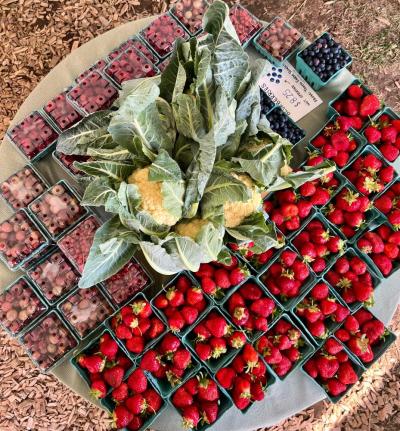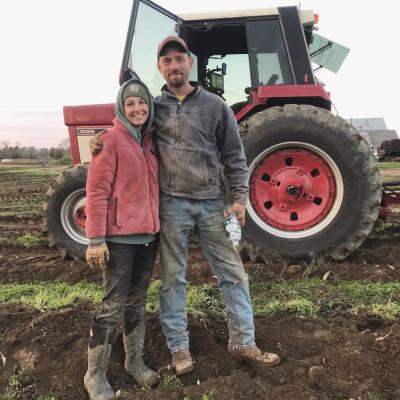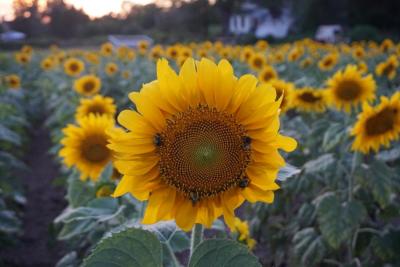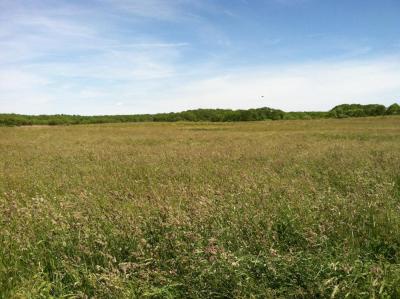Dartmouth farmers working to ‘Keep the Farm in Farm Coast’
Tucker Manley is a sixth generation farmer in Dartmouth, and he acknowledges he has a “leg up” because of it. He and his wife operate Russells Mills Flower Company on Alderbrook Farm, which his family owns.
But even with the land and knowledge from his family, Manley said he’s had to “bootstrap” the past four years, especially through the “twists and turns of Covid years.”
“The product that grows here does not match the real estate growth,” Manley said. “It makes it very challenging if your goal is to acquire a piece of property and farm it smartly.”
Sarah Cogswell, Executive Director of the Livestock Institute in Westport, echoed that sentiment: even with free land, local farming remains a daunting investment.
“Great, I am gifted 20 acres: so what?” Cogswell said, referring to a hypothetical scenario. “I don’t have any infrastructure to put there, I don’t have any way to control the deer population … I’ll have to tank water in, but that [land] owner doesn't want to see a tank of water there.”
Cogswell and Manley are both supporters of a loose collection of farmers in Dartmouth, Westport, Tiverton and Little Compton that are embarking on a coalition to “Keep the Farm in Farm Coast.” It’s a public advocacy campaign aimed at educating the community on farmers’ role in the economy and ecosystem and the current problems they’re facing.
Manley got involved in the coalition through Carter Wilkie, a pig farmer in Little Compton. Wilkie brought a bunch of people in the industry together to brainstorm what the campaign might look like.
“A lot of like-minded people are acknowledging that, unless something changes dramatically, this farm coast will start to feel much differently,” Manley said. “Young people like myself … will go farm somewhere else.”
The local community has good intentions, Manley said, but the reality of why farmers are struggling is a harder conversation. For instance, Dartmouth land preservation has not typically focused on farmland, but rather on open space conservation. That’s changing to a degree: the Dartmouth Natural Resources Trust recently requested proposals for farmers to lease two parcels in town.
“Even with their efforts now starting, the ball is kinda rolling down the hill,” Manley said.
That kind of deal, one where a farmer rents protected land at a lower price, is one of the only ways new farmers can survive in the area, according to Manley.
“If it’s on the open market, it’s untouchable for [agriculture],” he said.
The Natural Resources Trust is not an official partner in the coalition, but is supportive of local agriculture to protect natural resources, said Executive Director Nick Wildman.
“It’s really about those environmental benefits that responsible farming has,” Wildman said. “Agricultural soil is a really important natural resource.”
Manley thinks there needs to be an “organizational body,” whether public or private, that is “willing to fully accept this challenge and own it.” At the same time, the community needs to support that organization and understand the urgency of the issues farmers are facing.
“I do think it’s solvable, I really do,” he said. “There is hope, it’s not like this irreversible damage that has been done.”
Dan King, who runs King Farm in Dartmouth and works at Coastal Foodshed in New Bedford, said there’s a lot more opportunity to educate and bring awareness to consumers.
“For me, it’s about people prioritizing where they buy food,” King said.
Dartmouth is already a pretty proactive farm town, King said, but he hopes the coalition can bring awareness to the value of having farms in the region.
“We have a beautiful geography where we are, we’re trying to keep that so it doesn't all turn into housing maybe,” King said. “So it still has farms on it.”
Cogswell said this effort is a balancing act, as she wants to keep land accessible, but also acknowledges that the farm coast needs to address the rising cost of housing in the region.
“How can I raise my family where I farm?,” Cogswell said.
To that end, Cogswell said there’s much more to be done than telling the community to “keep the farm in farm coast,” but the work starts with small groups organizing and educating.
“I’m like ‘we need to do more,’ but also ‘just put the bumper sticker on the car,’” Cogswell said.
The coalition is organizing two events currently, one of which will bring chefs from Boston and Providence to do farm tours and understand the value of local agriculture. Another will bring farmers, landowners and land trusts together to get on the same page about issues facing farmers.
As for what the towns can do, the coalition hopes to have their support to solve problems together.
“I know towns want to maintain a safe and sustainable agricultural sector,” Cogswell said. “I want to encourage creativity and how to say yes instead of saying no.”
Visit farmcoast.info to learn more about the coalition and ask questions directly.



















